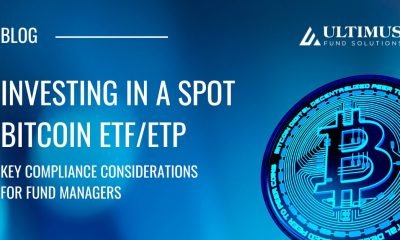Sticking with the Status Quo May Cost More Than Converting
As an investment manager, is your mutual fund administrator a transaction processor fulfilling basic functions? Or is your service provider engaged and strategic, providing high quality administrative services coupled with insightful business acumen? The difference could mean putting your organization in the best position for long-term success or putting it at significant risk.
While investment managers don’t always recognize that their service provider has become deficient, or fear converting to a new provider, staying with the status quo can be more risky. To help investment managers get the most out of their fund administrator, below are a few warning signs that indicate your current provider is not cutting it, along with some tips to ensure a smooth conversion if a switch is the best course of action.
RECOGNIZING ADMIN DEFICIENCY SIGNS
Unresponsive Service – If you have questions, can you get answers? How responsive is your service provider? Does it take days to get a response to a voicemail or email? A good service provider acts as an extension of your business and replies to emails and phone calls quickly because they are interested in resolving your questions or concerns.
Consistency Matters – For a service provider to be a true business partner, their operational continuity is critical. If operating models change, your service levels may change, particularly if provider employees are learning new systems or dealing with heavily functionalized processes. Understanding changes to your providers’ operating model is important in considering impacts to your business.
Relationship Time – Is the amount of time with your service provider shrinking? If so, the level of service is likely slipping. Service providers that are actively involved with their clients by attending meetings in person and having a consistent dialogue can make proactive recommendations and provide the best service. A well-informed provider is better positioned to offer valuable business insights. In addition, if your service provider gets acquired, their operational model or service culture may change causing changes in the relationship and quality of time they have for you. Be aware of these types of changes and don’t let them affect your business.
Commitment – If your mutual fund servicing department is part of a much larger organization, their commitment may be to themselves and not to being a true business partner. If servicing is just one piece of their organization, how much time and resources are they devoting to making improvements? Plus, some large service providers sponsor mutual funds which might compete for your business in growing assets. Understanding your service provider’s business model makes good business sense for you.
ADMIN CONVERSIONS: MYTHS AND REALITIES
Despite warning signs, many investment managers are apprehensive about making a switch or don’t know where to begin. The reality is that most managers have not been through a conversion and don’t realize that with the right partner, the conversion process can be systematic and seamless. Below are commonly held myths about the conversion process and steps a manager can take to address them.
Project Management –While investment managers view themselves as the project manager for the conversion process, the best service providers look at the conversion process as a project they need to manage on behalf of their client. That means the new service provider deals with the outgoing provider and only gets the investment manager involved as needed. When selecting a new provider, determine how they will manage a conversion process, and what team will be assigned to make the transition go smoothly.
Switching: It’s Not a Good Time – This is the most commonly held myth, but it has little merit. Converting must be a well thought out decision that considers contract stipulations, blackout dates, division of labor and costs incurred, in addition to timing. If the process is managed effectively by the new service provider, the conversion can take place with little impact to the manager and a lot of long-term upside benefits.
Conversion Costs – Cost is one of the most common conversion deterrents. By understanding the details of the conversion clause and exit fees of your current contract, you may be able to negotiate with the new service provider to help defray costs. The reality is if you are sticking with a sub-par provider because of fees, the cost to your business will likely be greater in the long run.
Shareholder Disruption – Many investment managers are afraid that a conversion will cause confusion and lead to shareholder redemptions. A good service provider will deliver a systematic approach for communicating with shareholders, ensuring a smooth process. The best providers make this process seamless for all parties by keeping everyone abreast of milestones, progress and challenges.
THE RIGHT BUSINESS CHOICE
Even though the conversion process may seem daunting, it’s not new, nor does it have to be painful. In fact, conversions happen all the time. Before even considering a conversion, investment managers must be able to recognize the signs that their current service provider may be failing, then take control of the process and make the right choice for their business. Converting may seem like a risky proposition, but in today’s environment the real risk could be sticking with the status quo.



